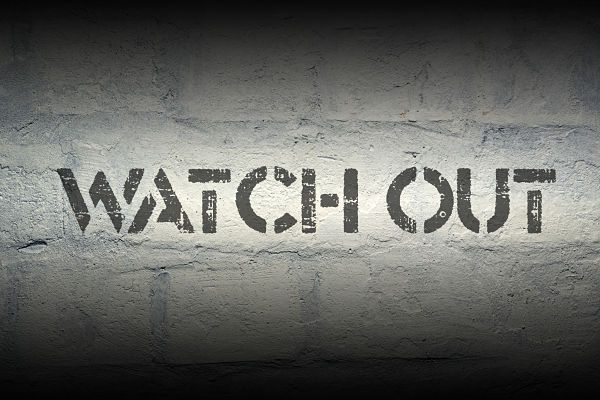I don’t know who at publishing house Pam Macmillan Australia thought chef Pete Evans out qualified mother-nature when they decided to publish his book ‘Bubba Yum Yum – The Paleo Way – for new mums, babies and toddlers’ featuring a ‘DIY baby milk formula’ based on a bone broth recipe. Co-written with baby recipe blogger Charlotte Carr and naturopath Helen Padarin, Evans might rule in the kitchen, but in the media he had already courted controversy with his nutritional advice. Activated almond anyone?
Or who at Apple Inc, the raft of Australian glossy print magazines, publisher Lantern books (Penguin Australia) and Simon and Schuster’s international brand Astria Books; thought the miraculous story of now disgraced blogger and social media maven Belle Gibson curing herself of cancer of the everything could be entirely attributed to her adoption (and advocacy) of a clean eating alternative lifestyle. Which of course you too could benefit from after downloading the ‘The Whole Pantry’ app for $3.79.
And it beggars belief that it took almost 5 years for the full extent of the corruption at FIFA to be uncovered, after the surprise December 2010 announcement that Qatar had won the right to host the 22nd World Cup.
While ‘Bubba Yum Yum’ is now being peddled independently and investigations into the corruption at FIFA are ongoing; I can only assume that copies of ‘The Whole Pantry’ have been pulped and are now pushing up organic kale in a veggie patch south of nowhere.
Why aren’t you angry? You’re being conned!
Why is it that we see time and time again – the media and brands jumping on the latest pseudo-celebrity endorsed bandwagon without asking the most obvious of questions about credibility and risk first?
Their rationale, while not particularly moral, is pretty simple to understand: the media fuel the self-prophesying click-bait news cycle that is geared for profit. Yes you read that right — profit. While brands see dollar signs hanging from these individuals like a kid looking at candy canes on a Christmas tree, the media are playing the profitable long game.
While there is money to be made from the latest notable hipster spruiking low-foam, kale infused, quinoa activated, decaf paleo coconut water — no one seems to care if their nutritional claims are proven, their miracle healing advice substantiated, or surprise winning-bid is legitimate before jumping on the brand association bandwagon.
With social media the backbone of behaviourally based marketing, brand associations could be the longest consumer based con of all time. The big question organisations should be asking (but aren’t) are at what point they as a brand become complicit in perpetuating that con? And at what point they become corporate collateral damage.
Brands cruising toward crisis
Think about it – if your brand is going into a sponsorship or commercial arrangement with an identity espousing a particular product, service, or lifestyle (controversial or not) it too can quickly become part of the problem.
Being associated with an identity while they are popular is without a doubt financially lucrative to both parties, but at what point does morality become more important than money? Longevity more important than likes? Credibility more important than celebrity?
Social media means brands have never had more to lose in this equation. Forget about money for a moment, what about your reputation? Could your business withstand widespread national anti-sentiment while you become the media’s latest click-bait headline?
You can’t put a price on the value of your credibility
Like riding a wave, the key to being strategic about your brand associations is to train to stay within the curl over the long game but knowing how to out-swim the current if you get dumped.
Here are my top 4 tips for businesses considering brand associations:
- Do your research. Check your facts. Demand professionally recognised and endorsed evidence to substantiate personal and professional claims.
- Insist on legally enforceable contractual terms that provide you with a clear exit strategy. If you have done your due diligence and are still duped, refocus any media attention or public statements away from your brand and toward the source of the crisis. Take the higher moral communications ground on every occasion.
- Have an exit strategy. And don’t be scared to use it. Know what your organisational appetite for risk is and at what point you become collateral damage. If more than 50% of your business income is reliant on this singular association, you’re already treading water.
- Have a crisis communications plan. Together with your exit strategy, ensure you have an organisationally endorsed crisis communications plan. Knowing what you will do if things go south in a hurry will not only save you inordinate amounts of time, but also give you greater control of your narrative thereby limiting your exposure toward becoming brand collateral damage.
MORE ABOUT NICOLE
Nicole is a published author and internationally recognised military information operations specialist. A regular instructor for and speaker to NATO; Nicole is a trusted adviser to Governments around the world in the areas of social media warfare, information operations, countering violent extremism, public diplomacy, strategic and crisis communication. CEO of the civil-military think-do tank Info Ops HQ and Managing Partner of crisis and strategic communications consultancy Quantum CIQ, Nicole is a sought after adviser and keynote speaker with global expertise in navigating crises in a dynamic environments. Her book ‘Social Media Rules of Engagement' was published through Wiley in 2015.
Latest.

5 simple (but powerful) ways to shine in your design interview.
Job Seeker, Design

How to demonstrate the value of your design team in 2025
Thought Leadership, Design, Industry Trends, Leadership

Ace your interview: Words to watch out for.
Job Seeker



